King Charles III A Champion Of Biodynamic Farming
September 21 2022
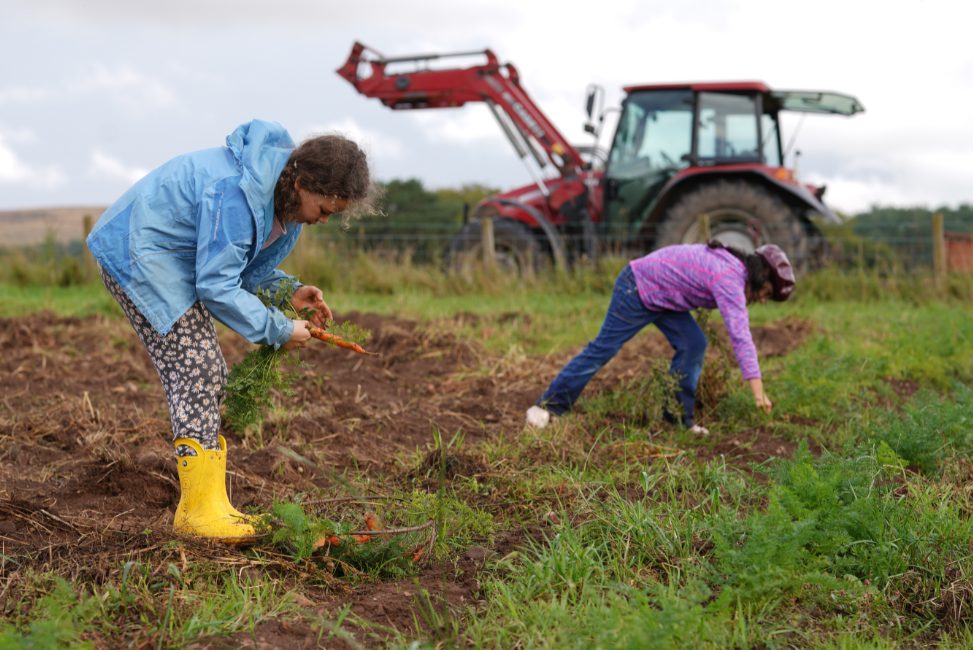
A biodynamic farm is considered to have its own identity and be a self- sustaining organism in its own right. A fundamental principle which a biodynamic farmer or grower works towards is thus to be a ‘closed loop’ system that does not need to buy in feed or fertility from external suppliers, or one that is stretched beyond its natural capacity.
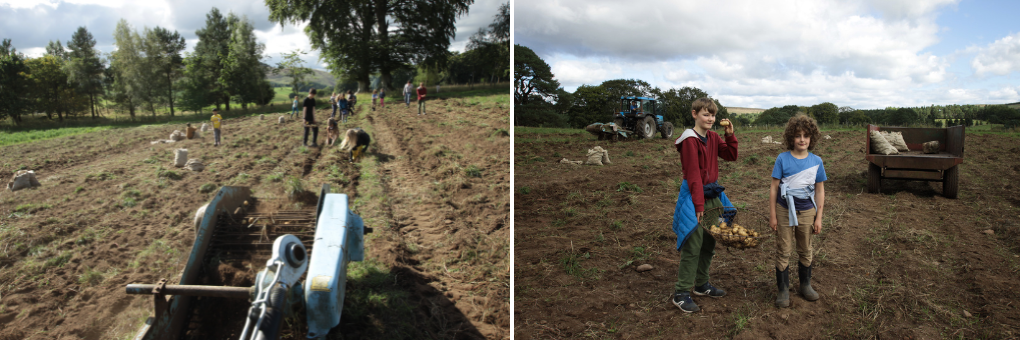
Class 5 pupils ‘tattie howking’ as part of their Botany and Scottish Geography Main Lessons.
Our new king, Charles III, has been a longstanding advocate of biodynamic farming, converting the farm at Sandringham estate to a completely organic system as long ago as 1985 when he took over its management from his father, Prince Philip, the Duke of Edinburgh. Learning about biodynamics during a trip to Australia twenty years later, Charles subsequently organised workshops for the farmers and gardeners who worked his land in Duchy of Cornwall and at Highgrove Estate in Gloucestershire.
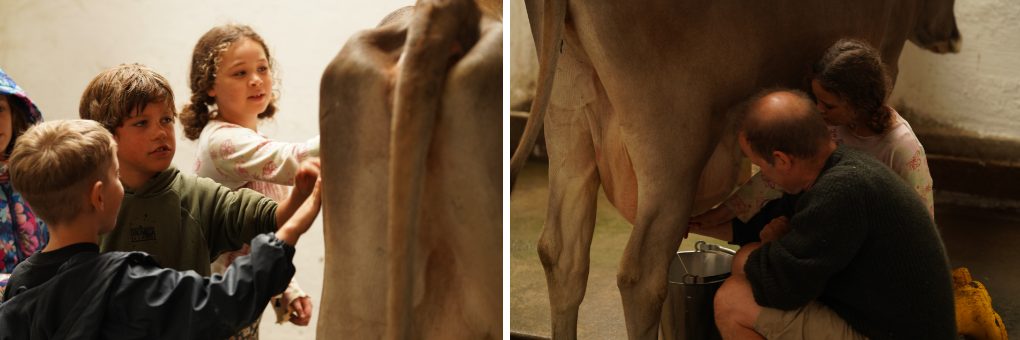
Class 3 pupils hand-milk the dairy cows, witness the pasteurisation process and taste the milk of cows raised on a biodynamic farm.
The Soil Association was founded in the 1940s by a group of people who were concerned about the health implications of increasingly intensive farming systems and the use of pesticides following the Second World War. As a guest speaker at the Soil Association’s 50th anniversary, Charles attacked conventional “industrial” agricultural techniques and strongly promoted organic farming.
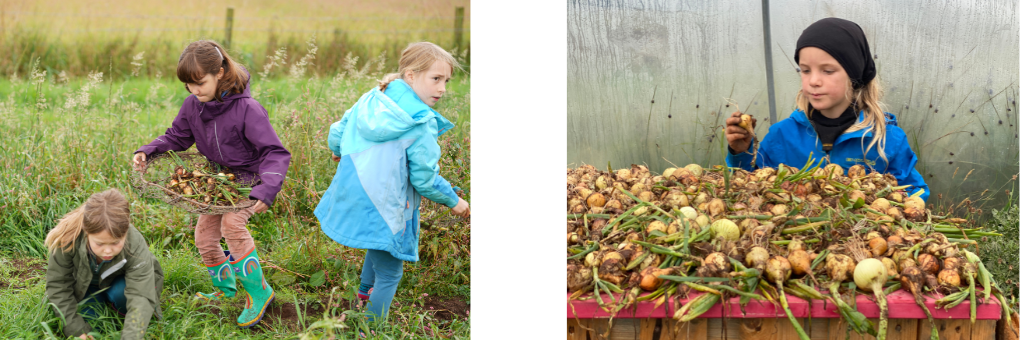
ESS has paired with a biodynamic farm twenty miles from the school gates for decades, visiting on this occasion on ‘Root Day’ to harvest carrots, potatoes and onions.
The following year, he spoke at the Biodynamic Agriculture Conference in Milano, Italy in 2016 showing his deep ecological and also spiritual understanding and the role of agriculture for a sustainable future, using the phrase “canabalising ecology for economic gain” while describing the popular farming methods of the recent past; and gave the opening address to the International Biodynamic Agriculture Conference in Switzerland in 2017.
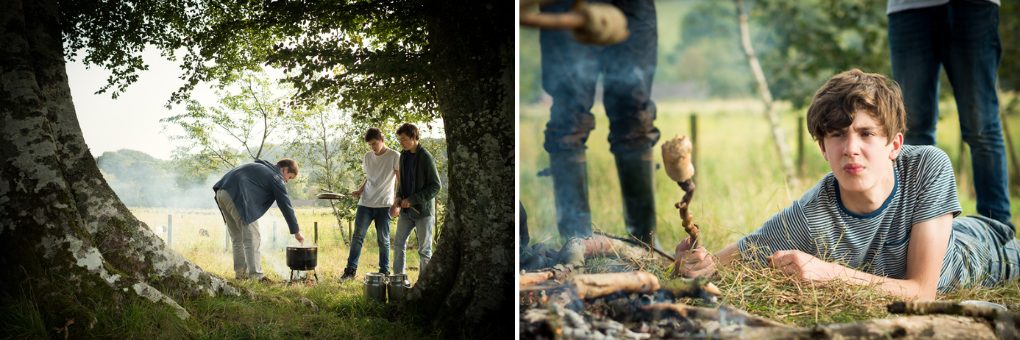
Pupils share a campfire lunch of homemade vegetable soup warmed by the flames; damper cooked by the heat; all classmates sharing from the same pot of biodynamic ingredients, harvested from the crops in eyesight of where the Class gather to break bread together.
At one of his last official engagements as Prince of Wales at a global allergy symposium at Dumfries House in Scotland, the King openly expressed concern regarding expert evidence that western lifestyles may have contributed to the reported global increase in allergies. A Guardian piece at the weekend reporting on his speech pointed out: ‘The meeting on 7 September is significant because it may have been the last occasion when Charles was willing to speak so candidly about his personal views.’ (Full article: ‘I was told I was a complete idiot’ about organic farming, Charles said day before becoming king‘ (17th Sep).
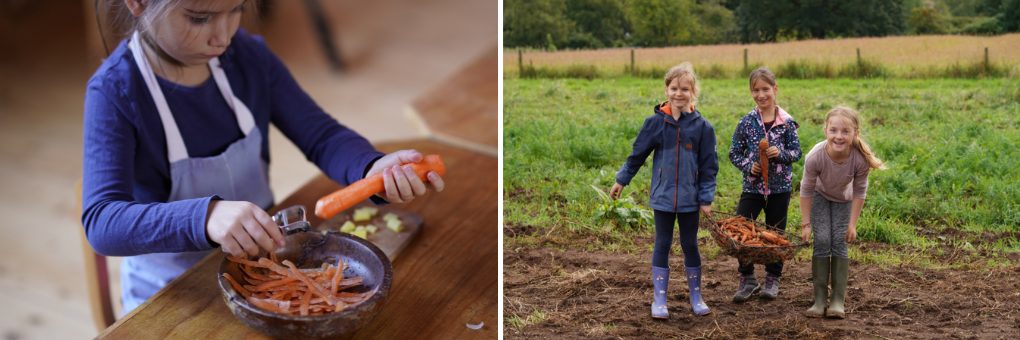
Biodynamic organic carrots are grown without pesticides so do not need to be peeled, though contributing a vegetable for the ‘Stone Soup,’ preparing them with tools, eating seasonally and partaking in composting starts in Kindergarten. the environment lays the ground for healthy eating habits. This same pupil, now in school, pulls the ingredients from the soil.
The spiritual, ecological and regenerative approach to farming is based on the Agriculture Course delivered by the Steiner Waldorf schools’ founder in June 1924. Rudolf Steiner was asked by farmers about what they could do to improve nutrition as they were very aware that food was not as it had been. What emerged out of these lecturers – the seeds of Biodynamic Farming – is an ideal to aspire too, a life’s work, as opposed to a set of rules to tick. Distinctly, it works with the external forces of the sun, moon and the stars.
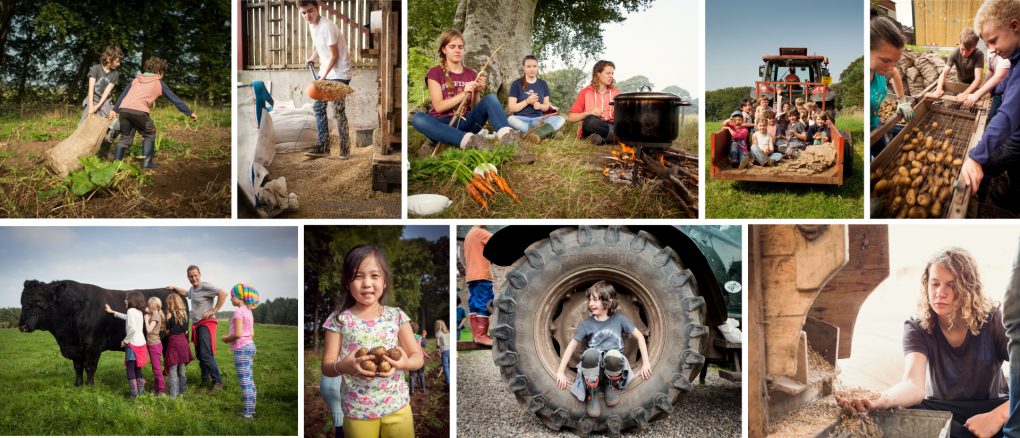
The pupils from Edinburgh Steiner School undertake a wide range of work to gain a real sense of the day-to-day graft of food production, agricultural methods of farming, as well as the environmental impact; reinforcing the teaching of sustainability and the belief in self-reliance.
At the height of organic conversion in the UK in 2006, Patrick Holden CBE, former Director of the Soil Association and current Director of the Sustainable Food Trust as well as the Patron for the Biodynamic Association, credited the King for the significant increase in organic farming methods in Britain, declaring: “I don’t think it can be overestimated” how much that was due to the King’s influence. (‘Prince Charles – Not Your Typical Radical’, National Geographic, 2006).
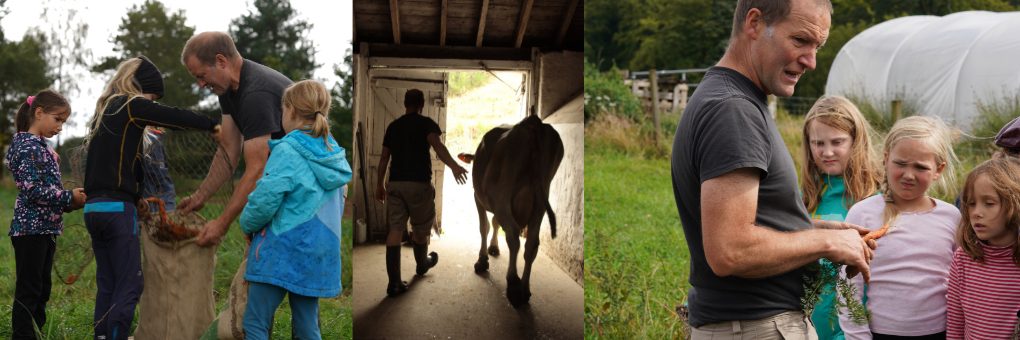
Edinburgh Steiner School has been nourished by a decades-long relationship with Garvald Home Farm, a 200-acre working biodynamic farm twenty miles from the school gates. Farmer Nick Brett is also a long-serving Steiner Waldorf Teacher.
Demeter certification is the world’s oldest certification mark. Certified biodynamic farmers, growers and gardeners are automatically also certified organic in the UK. Across England, Wales, Ireland and Scotland, the organic market is entering its 11th consecutive year of growth; and with the Scottish Government introducing the carrot of grants to encourage farmers to begin the 2-year organic conversion, we are hopeful that it meets its ambition of doubling the amount of land under organic management.
Edinburgh Steiner School uses organic and biodynamic ingredients to freshly make its school lunches daily. We looks forward to stocking a variety of biodynamic and organic produce at its Friday Market stalls from East Coast Organics, Garvald Home Farm and Garvald Bakery.
